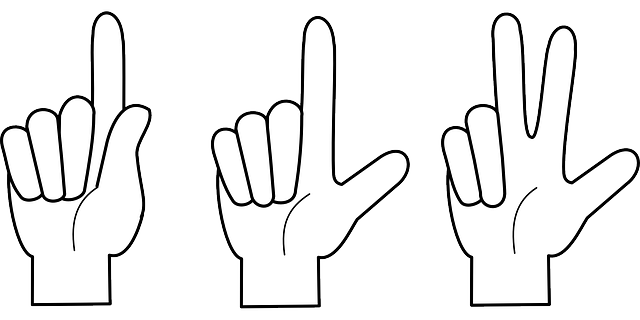The criminal procedure cannot conclude only with a declarative sentence without real effects upon those who are affected by it, this sentence has to be executed, its provisions have to be fulfilled, a criminal procedure can only be consider as such, when this happens.
The Spanish Criminal Procedure Act (LECrim) is divided by books, each containing a specific matter, but in most of cases all are treating on the same, the Ordinary Procedure, the procedure which supposedly (there are exceptions) has the provisions which the others lack. Therefore, the execution of the sentence is a book more which should be added to the rest, and as the last book with it we can give for finished the regulations concerning the Ordinary Procedure and with it, the LECrim.

– General aspects:
It is common to all the sentences that they have to be executed in their own terms, this is what emerges from the article 118 of the Spanish Constitution (CE) and the article 18.2 of the Spanish Organic Law of the Judicial Branch (LOPJ). This will happen when the sentence achieves firmness (art. 988 LECrim), does the above signify that until a sentence is not firm a convicted cannot go to prison? No, because having he not been convicted yet by firm sentence, an investigated can be subjected to both personal and real preventive measures either by the Examining Magistrate, or the judge, or the court that will know of the cause (art. 502 LECrim), although with the limits established in the art. 504 LECrim. In other words, he can go to prison bur for different motives.
Nevertheless, there exist cases in which a sentence will not have to be executed in its own terms and can be suspended (art. 80 of the Spanish Criminal Code), or even as consequence of the commission of different infringements, these can be accumulated in the terms of the art. 988 LECrim and the art. 76 of the Spanish Criminal Code (CP), in a way which results more favorable for the convicted. Let us see each of these cases.
– The suspension of the punishment of the article 80 CP:
Having been dictated the sentence, and either having the parties manifested their intention of not appealing it or being this firm, the judge or court that has dictated the conviction may agree the suspension of the execution if the requisites of the article 80 of the Spanish Criminal Code are met (art. 80 CP).
This possibility will only exist, when the facts have not been punished with a term of imprisonment greater than two years and it is reasonable to think that the execution of the punishment is not necessary to avoid the commission of new crimes by the convicted. Through this way, the social reintegration of the convicted can be facilitated, avoiding the negative effects which can arise from its stay in prison.
The circumstances which must be taken into account by the judge or court when they are deciding on the suspension of the punishment, are all included in the own art. 80 CP: “the circumstances of the crime committed, the personal circumstances of the convicted, his criminal record, his behavior after the crime has been committed, in particular his effort for repairing the harm caused, his family and social circumstances, and the effects which may arise from the own suspension of the execution and the fulfillment of the measures which can be imposed.”

Although after, in the second section of the article 80 CP, there are three requisites which must always be fulfilled in order to allow the judge or court to agree the suspension of the punishment:
1º That the convicted has committed for the first time a crime.
2º That neither the conviction nor the sum of the imposed can be greater than two years.
3º That the civil liabilities which may have arisen must be satisfied and the confiscation agreed in firm sentence, according to the article 127, must have been made effective.
Notwithstanding the above, this does not mean that fulfilled the above three requisites either the judge or court are obliged to agree the suspension of the punishment, following the own wording of the article 80, this said that the judges or courts “may leave in suspension the execution of the term of imprisonment”, the expression “may” must be understood in the sense that the agreeing of the suspension of the punishment is a discretional power of the judges and courts, although it is subjected to some guidelines.
What we have seen up to now is the general rule, to which there are exceptions also established in the article 80. The first is in the third section, which exempts from application the above first and second requisites to agree the suspension of the punishment, if they are not habitual convicted offender, the terms of imprisonment do not individually exceed the two years, and the circumstances advise its concession. Another exception is found in the fourth section, which allows the the judges and courts to not take into account any of the aforementioned requisites to grant the suspension of the punishment, when the convicted is suffering a incurable serious illness. Lastly, the last exception is contemplated in the fifth section, which allows to the judges and courts to agree the suspension of the punishment, even when it has surpassed the threshold of the two years of imprisonment established at the beginning of the article 80, although with a new limit of five years of imprisonment, when the convicted has committed a crime due to his addiction to drugs.
– The accumulation of punishments of the articles 988 and 76 of the CP:
When the convicted has been punished by more that one firm sentence and must comply all the convictions, the genera rule of the article 75 CP must be fulfilled: “When all or some of the convictions corresponding to the different infringements cannot be fulfilled at the same time by the convicted, the order of their respective gravity will be followed for their successive fulfillment, always that this is possible”.
But as the own article 75 recognizes at the end, this will not always be possible, because to these successive fulfillment of convictions there are limits, the established in the article 76: “Notwithstanding the stated in the above article, the maximum effective fulfillment of the conviction of the guilty cannot exceed three times the gravest punishment imposed, being declared extinguished the others from the moment is achieved this maximum, which cannot exceed of 20 years”.
To the above we must add the agreed for the Second Chamber of the Spanish Supreme Court, in its agreement of 3 February 2016: “The accumulation of convictions should be done departing from the oldest sentence, since being contained in it the facts tried in the first place, it will serve as a reference regarding the other facts tried in the other sentences. To this conviction we have to add all the subsequent conditions referring to facts committed before the first sentence.
The convictions whose accumulation proceeds with regard to the oldest sentence, will not be able of being the object of subsequent operations of accumulation regarding the rest of sentences. However, if the accumulation is not viable. nothing will impede their reconsideration regarding the whatever later sentences, according their accumulation if between them are capable of it.
To the effects of the art. 76.2 CP the date which must be taken into account is the date of the sentence dictated in instance and not the date of trial.”

Therefore, the accumulation of punishments is allowed, when the rules contained in the above agreement are followed, and besides, this accumulation does not exceed the limit of three times the gravest conviction, mentioned in the article 76.
– The effects upon the execution of the conviction of the application for amparo and the petition for pardon:
For more information on this point I recommend you other of my articles, the referring to the execution of the sentences in the Abbreviated Procedure.
– Other data of interest:
- In the criminal sentences is attributed to the judicial organ the boost and the initiative in the execution, even of the civil procedures, this gives rise to two circumstances: Neither the term expiry established in the art. 518 Spanish Civil Procedure Act (LEC), nor the term of prescription of the art. 1971 of the Spanish Civil Code are applicable.
- “…we have to distinguish two different scenarios: a) when the dead of the investigated or accused takes place before the conviction, in which case the criminal action is extinguished and the harmed has to resort to a civil action for exercising the this civil action against his heirs or assignee (art. 115 and 116 of the LECrim); or b) when the dead of the civil convicted in the criminal procedure, either as civil liable, or as civil and criminal liable, in which case, without prejudice of declaring extinguished the criminal liability, the civil execution will continue ex officio in the piece of civil liability of the cause in which was declared.” (AAP S 285/2020).
Víctor López Camacho.
Twitter: @victorsuperlope.
More on my website: www.victorlopezcamacho.com
